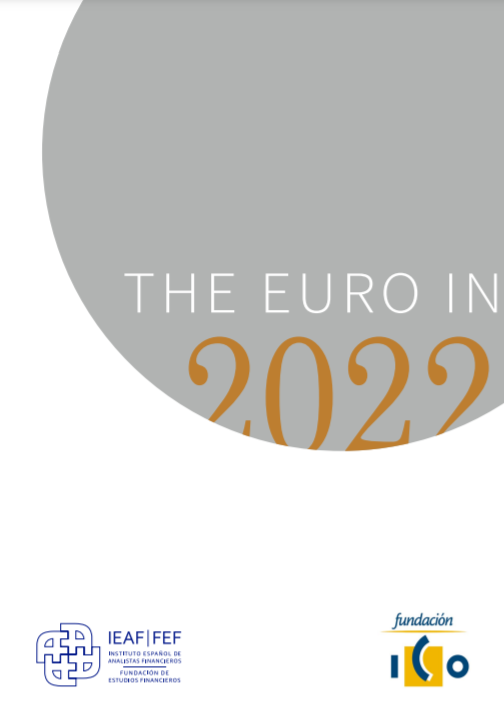Blog Post
Inflation!? Germany, the euro area and the European Central Bank
There is concern in Germany about rising prices, but expectations and wage data show no sign of excess pressures; German inflation should exceed 2% to support euro-area rebalancing but is unlikely to do so on sustained basis.
Public inflation scare?
An inflation scare has erupted – at least in some countries. Interest in the term ‘inflation’ as measured by Google searches has hit a high in the United States (Figure 1). In Europe, meanwhile, interest has been increasing in Germany and the United Kingdom, but not in France or Italy. The Bundesbank even sees the possibility of German inflation reaching 4%. Ahead of the European Central Bank’s Governing Council meeting on 10 June, are German concerns warranted and how worried should the ECB be about euro-area inflation increasing too much?
Euro-area inflation worries?
The ECB targets euro-area inflation and not German inflation specifically. For the euro area, professional forecasters’ predictions foresee inflation close to the ECB’s 2% target. Market-based inflation data based on swaps data has edged upwards since last year. The numbers are, however, not substantially higher than they were pre-pandemic and remain below the 2% target over the entire horizon (Figure 2). Data based on break-even rates shows a similar picture and even lower inflation.
Meanwhile, a look at national inflation rates in Germany, France, Italy and Spain indeed shows different patterns. German inflation rates have picked up while French, Italian and Spain rate showed more muted increases – quite in line with the search queries on google.
A German inflation rate above the euro-area average is to be expected in order to close the gap in real effective exchange rates that occurred in the first decade of the euro. In fact, since 2012, there has been a gradual adjustment, with German inflation rates exceeding euro-area rates. Countries which became relatively less price-competitive in the first decade of the euro saw even stronger adjustments (Figure 5). As a result, overall inflation rates have been depressed well below the 2% rate since 2012 (with a few exceptions).
The question is whether higher inflation rates are driven by higher wage growth, helping to close the gap in unit labour costs between Germany and the euro area.
Are wages increasing in Germany?
In Germany, the relatively low unemployment rate and high participation rate (see figures in the annex) have translated into higher-than-average wage growth. But even wage growth of 3%, as the European Commission predicts for Germany in 2022, would not lead to a sustained inflation rate above 2% if productivity growth reaches a meagre 1%.
Looking in more detail at wage developments, collectively agreed monthly earnings in Germany have fallen substantially during the pandemic (Figure 7). In the first quarter of 2021, collectively agreed monthly earnings in Germany were at the lowest level since 2015.
The inflation outlook may be reflected in the wage-bargaining process, as low inflation makes it difficult to negotiate wage increases. Table 1 shows negotiated wage increases in Germany in selected sectors. In 2021, most sectors will not have sizeable increases over the wage agreement from the previous year. That is not surprising, given the uncertainty in the labour market caused by the pandemic. Even for 2022, the agreements that have already been established do not suggest a major increase.
Conclusions
Euro-area inflation forecasts do not show any sustained rise in inflation. Increased headline inflation in Germany has given rise to some public concern about rising prices. However, German inflation rates ought to be higher than the 2% inflation target to facilitate relative price adjustment across euro-area countries. In terms of labour market performance in Germany, wage agreements have indeed been higher than in the euro area since around the time of the financial crisis. However, there is no evidence in the recent data that German wage pressure is building up. On the contrary, agreed wage increases have been lower during the pandemic and forecasts and settlements for 2022 do not suggest any unusual increase. It does not appear likely, therefore that even German inflation will be much above 2% on a sustained basis and driven by cost increases. Temporary factors can, of course, drive up the inflation rate. The ECB can therefore be relaxed about inflation in both Germany and the euro area at its governing council meeting.
Annex:
Recommended citation:
Wolff, G. (2021) ‘Inflation!? Germany, the euro area and the European Central Bank’, Bruegel Blog, 9 June
Republishing and referencing
Bruegel considers itself a public good and takes no institutional standpoint. Anyone is free to republish and/or quote this post without prior consent. Please provide a full reference, clearly stating Bruegel and the relevant author as the source, and include a prominent hyperlink to the original post.










